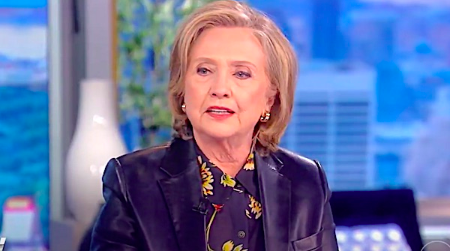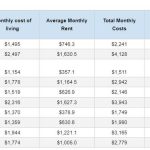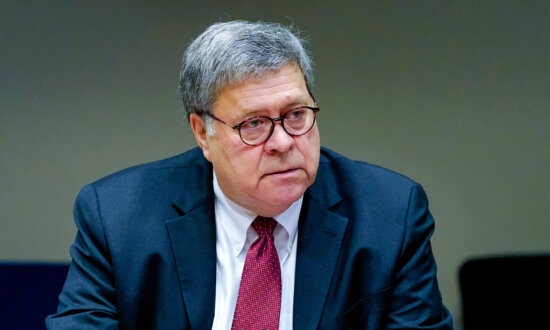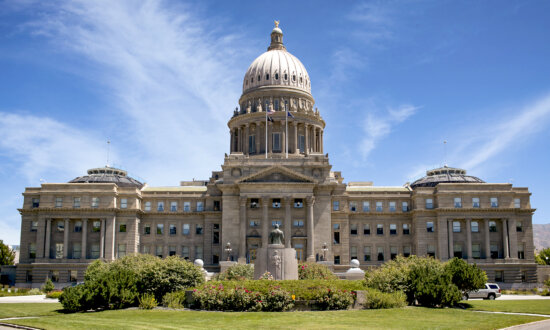Durham finds her aide was source of ‘pee tape’ in dossier she financed
Hillary Clinton and many Democratic Party leaders have never accepted Donald Trump’s 2016 victory, accusing him of colluding with Russia to steal the election from her.
But the evidence continues to grow that it was Hillary Clinton who engaged in collusion with Russia while her presidential campaign was threatened by the FBI’s probe of her mishandling of classified information.
It’s been known for some time that her campaign and the Democratic National Committee financed the bogus Steele dossier, which became the premise for an Obama FBI investigation of the Trump campaign that triggered a nearly two-year, $45 million special counsel probe that dominated
Now, the arrest and indictment of the Russian citizen believed to be the dossier’s primary “sub-source” has given the saga a new wrinkle.
Some of the anti-Trump document’s most sensational and now debunked claims, including the infamous “pee tape,” came originally from a Hillary Clinton lieutenant, according to an indictment handed down Thursday by special counsel John Durham’s office.
The Clinton aide is communications consultant Charles Dolan Jr., who is identified in the indictment of Igor Danchenko as “PR Executive-1.”
Danchenko, who was born in Ukraine and has worked in the United States, is charged for concealing the fact that Dolan was one of his sources for the information he gave to former British spy Christopher Steele for the dossier.
The Clinton operative Dolan, meanwhile, has extensive ties to the Russian government, including relationships with “senior Russian Federation leadership,” the Danchenko indictment states.
Among them are President Vladimir Putin’s press secretary and staff.
Dolan, according to Durham, “spent much of his career interacting with Eurasian clients with a particular focus on Russia.”
He handled “global public relations for the Russian government and a state-owned energy company.” And he had a friendly relationship with the Russian ambassador to the U.S. and his deputies.
The Clinton-manufactured ‘pee tape’ claim
The indictment spells out Dolan’s role in creating the dossier.
He arranged for Danchenko to meet in Moscow with Russian officials and “sub-sources” who offered information that ended up in the document.
Dolan himself turned out to be the source of the allegation that Trump paid prostitutes to urinate on a bed in a Moscow hotel on which President Obama supposedly slept.
The Clinton operative stayed at the hotel and was given a tour by management, the indictment states.
Identified by Durham as “Organizer-1,” Dolan was told by a hotel staffer during a tour of the Presidential Suite that President Trump stayed there.
But, significantly, the “staff member did not mention any sexual or salacious activity.”
Danchenko specifically has been charged for falsely stating Dolan was not a source for “Trump’s stay and alleged activity in the Moscow hotel.”
He also is charged with fabricating the claim that the president of the Russian-American Chamber of Commerce informed him that Trump was involved in a well-developed “conspiracy of cooperation” with Putin’s regime. The conversation never took place, the indictment concludes.
‘Sights set on the Clinton campaign’
Former federal prosecutor Andrew C. McCarthy believes the indictment of Danchenko shows Durham “has his sights set on the Clinton campaign.”
“Durham’s charging instruments suggest that the Clinton campaign used its agents to peddle the Trump-Russia rumors to the government and the media, then used the fact that Trump was being investigated as part of its campaign messaging,” he writes in the New York Post.
McCarthy points out that Danchenko worked at the Brookings Institution, the Washington think tank formerly led by Strobe Talbott, a college friend of Bill Clinton’s who worked in the Clinton State Department.
At Brookings, Danchenko worked with Fiona Hill, who later became a member of President Trump’s National Security Council and was a key witness in the first Trump impeachment over the Ukraine controversy.
It was through Hill, McCarthy notes, that Danchenko became acquainted with Steele, who had been running a London-based intelligence firm after his retirement from MI-6.
McCarthy notes the FBI interviewed Danchenko “because it was desperately trying to corroborate the Steele dossier claims.”
“One question that Durham must be pressing is: What took the bureau so long?”
He recalls that the Obama Justice Department brought the FBI’s sworn claims to the secret federal Foreign Intelligence Surveillance Court in October 2016 to obtain a permit to spy on Trump campaign volunteer Carter Page.
The dossier turned out to be the primary evidence submitted to the court.
The FBI is required to verify its allegations before going to court, but it apparently did not interview Danchenko, the main source for the dossier, until January 2017.
By that time, the Obama FBI was obtaining its second 90-day spy warrant.
“It appears that Durham theorizes that the Trump-Russia collusion narrative was a political attack manufactured by the Clinton campaign,” McCarthy says. “Relying on Danchenko, Steele compiled the reports for Glenn Simpson, co-founder of intelligence firm Fusion-GPS, which specializes in digging up political dirt. Fusion-GPS was retained for the Trump project by Perkins-Coie, the Clinton campaign’s law firm.”
In September, Durham indicted former Perkins-Coie attorney Michael Sussmann for making a false statement to the FBI while peddling Trump-Russia allegations that the bureau eventually found unsubstantiated.
Durham alleges that Sussmann concealed the fact that he was working for the Clinton campaign and a tech executive who sought an important government job if Clinton was elected.
Hillary Clinton continues to claim Trump stole the 2016 election by colluding with Russia, despite the fact that special counsel Robert Mueller’s highly motivated, Democrat-stacked team came up empty.
In May 2019, for example, she told supporters on the “Evening with the Clintons” national tour with her husband that she had been pouring over Mueller’s report and feared the same “interference” tactics would be “alive and well” in 2020.
“You can run the best campaign, you can even become the nominee, and you can have the election stolen from you,” she said to cheers in Los Angeles.
Months later, in a CBS News interview, she called Trump an “illegitimate president” and suggested “he knows” he stole the 2016 election.
Tom Fitton, the president of Judicial Watch, which exposed Clinton’s unauthorized email system, said the Obama administration’s Russia probe was “never about Russia.”
“Targeting of Trump and team served to protect Hillary Clinton (and now Obama, Biden, McCabe, Brennan, Comey, Schiff, etc) and their enablers/co-conspirators in Obama admin from prosecution,” he wrote on Twitter.
#Obamagate was never about Russia. Targeting of Trump and team served to protect Hillary Clinton (and now Obama, Biden, McCabe, Brennan, Comey, Schiff, etc) and their enablers/co-conspirators in Obama admin from prosecution. @JudicialWatch pic.twitter.com/Wjl3yGaRxK
— Tom Fitton (@TomFitton) November 5, 2021
Strzok again
Meanwhile, the FBI investigator whose personal animus toward President Trump fueled his efforts to advance the Trump-Russia investigation amid an acknowledged lack of evidence, told MSNBC’s Rachel Maddow on Thursday night he’s “concerned” about the indictments of Sussmann and Danchenko.
Peter Strzok said the indictments “have subtle dog whistles to these kinds of pro-Trump conspiracy theories.”
“The indictment makes a point to note that the FBI was unable to corroborate Steele’s reporting,” Strzok claims, “but, at the same time, it neglects to mention that we weren’t able to disprove it either.”
Strzok said the indictments are “seeking to lay out a false narrative about the entire effort of what the FBI and Special Counsel [Robert] Mueller did.”












